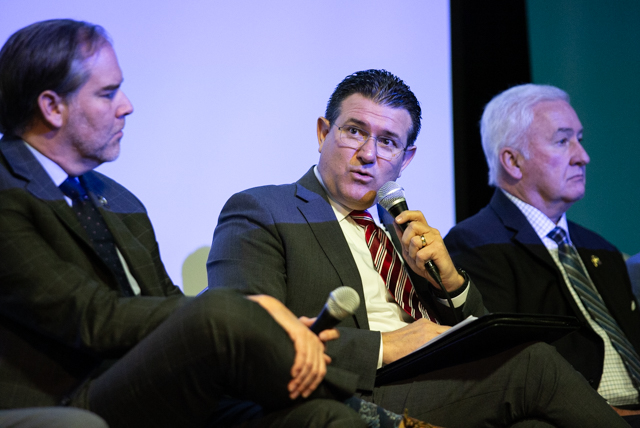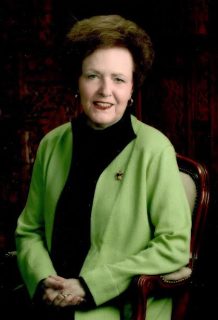School districts mandated to plan advanced course policies
Published 7:19 am Monday, May 5, 2025
DAVID MAMARIL HOROWITZ
david.horowitz@bgdailynews.com
New legislation will require Kentucky school districts to establish clear policies for advanced coursework or accelerated learning across language arts, math, social studies and science for students fourth through 12th grade.
School districts must establish these by Dec. 1. Legislators unanimously supported the legislation, House Bill 190, which was sponsored by Robert Duvall, R-Bowling Green, and had a signing ceremony April 29.
These plans may automatically enroll students who score “distinguished” on the state assessment into those advanced courses or accelerated learning. Schools are encouraged to incorporate these automatic opt-ins, Duvall said, and the goal is to return and make them a requirement, with him planning to do so in one to two years.
“… We were trying to plant a seed here that said, ‘Hey, school districts, if you want to be on the cutting edge of education in Kentucky, this might be something you may want to go ahead and implement now before the General Assembly actually requires it,’ ” Duvall said.
It remains to be seen whether legislation will go through that eventually requires the automatic opt-ins, Duvall said. But at a bare minimum, Duvall added, whether or not such legislation passes, he hopes school districts will be ready for implementation in fall 2026.
“If we want students in Kentucky to be able to achieve at high levels, we must offer them opportunities to learn at high levels,” said Western Kentucky University Mahurin Professor of Gifted Studies Julia Roberts, chair of the Kentucky Advisory Council for Gifted and Talented Education, who spearheaded the legislation. “It will give leaders in all districts the opportunity to think about, ‘What are we offering that will require students to think at high levels?’ ”
The mandated plans are required to describe “the strategies and approach to advanced coursework or accelerated learning options” by grade level for the four areas of study, according to the bill.
For students identified as gifted and talented, it also requires at least one among 10 “service delivery options,” which include “collaborative teaching and consultation services,” “special counseling services” and “differentiated study experiences for individuals and cluster groups in the regular classroom.”
Districts’ plans may allow a parent or guardian to provide written consent to opt out a student eligible for advanced coursework, according to the legislation. The plans can also permit a principal to withdraw a student without parental or guardian consent if participation in advanced coursework “would have an adverse educational impact on a student, including interference with his or her career pathway, access to career and technical education coursework, or another educational opportunity.”
Districts must post these plans publicly on their websites, according to the bill. It is currently unknown what percentage of school district classes already meet the bill’s criteria for these plans, Duvall said.
Duvall stated that the planning requirement concerns the implementation of advanced coursework or accelerated learning. While the bill language uses the nominalization “promotion,” planning for implementation is the expectation, and if districts’ plans don’t include some form of implementation, then that will “certainly” be clarified after they’re reviewed in December.
“We’ll see what they come up with in December, and then we will adjust accordingly,” Duvall said. Looking at districts’ plans will make clearer what their capacities are to offer the advanced coursework or accelerated learning options – and can help guide the legislative budget for the upcoming session, said Duvall, who added that he’ll “fight for every available resource” to ensure the legislation is a success.
“If we need to fight for funding to help make this a reality, I’m going to be in there fighting for funding,” he said. “I don’t think that there’s any wiser way that we can spend our money, but to educate our kids.”
Roberts, from WKU and the advisory council, pointed to the bill’s providing continuity for offering advanced coursework from fourth through 12th grade.
“I think it’s very important that students are given those opportunities no matter where they live, and a bigger school district likely offers more of them, but that big school district might not offer them to all children within that district, so that would give them the opportunity to look at what’s being offered in all of the schools fourth through 12th grade,” she said.
While the legislative language mentions the service delivery option of “differentiated study experiences for individuals and cluster groups in the regular classroom” for gifted and talented students, Roberts said that she expects the legislation to encourage schools to generally utilize more grouping and clustering by readiness.
“It is very difficult for a heterogeneously grouped class, which research tells us could have as many as seven different achievement levels,” she said. “It’s very difficult for a teacher to have everyone learning. Thus, if we have opportunities for advanced coursework for those who are ready to learn at those levels, it helps teachers, and it certainly helps all students continue to learn.”







